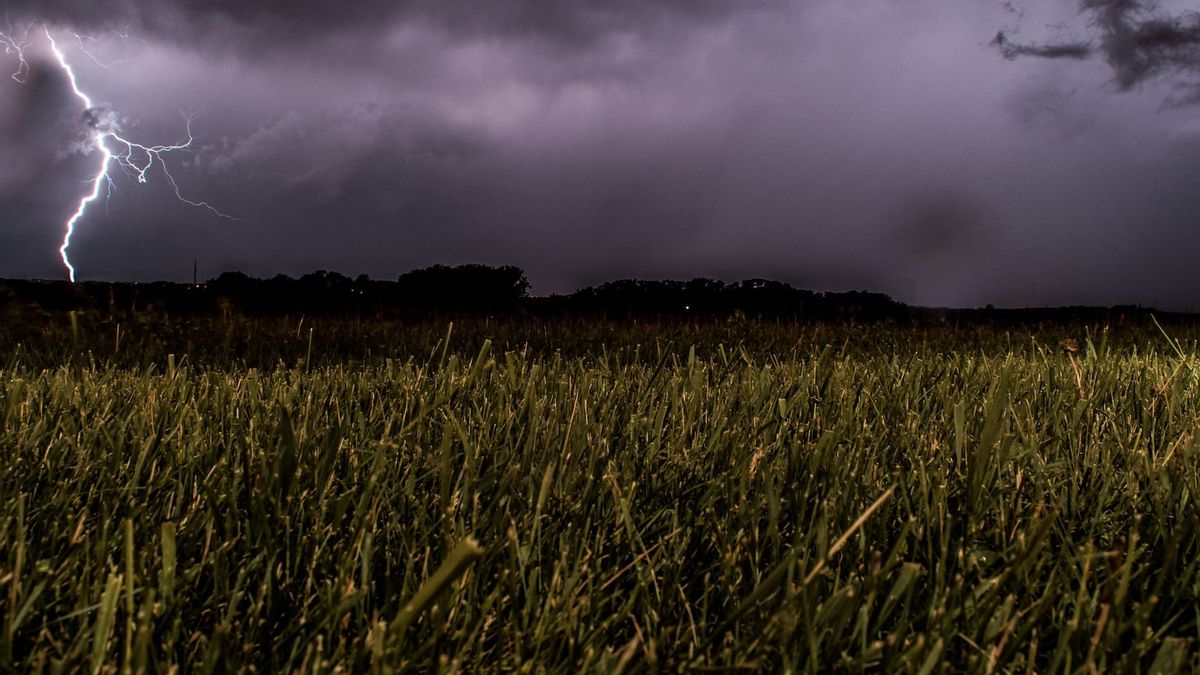JAKARTA - The rain and extreme weather that has occurred in recent times have caused many farmers to lose money due to crop failure. The government was asked to provide assistance to farmers who failed to harvest following the rice fields and plantations being flooded.
"The government must be able to overcome the problem of crop failure experienced by farmers in a number of areas. They not only experienced reduced profits, but some even lost money because the rice fields and gardens were flooded," said DPR RI Speaker Puan Maharani, Thursday, October 13.
A number of agricultural centers of rice, fruit, and vegetables experienced crop failure because their rice fields and plantations were flooded. Rainfall that is high above normal also results in an increase in moisture and causes the growth of plant-disturbing organisms (OPT), especially disease.
Not only that, the intensity of sweeping on agricultural land also fell and had an impact on the decline in the quality of agricultural and plantation products. Puan then highlighted several areas that will soon be harvested.
"We have to think about the fate of farmers who will lose their income because the production of tanya is destroyed due to flooding," said Puan.
To note, 4 farmer groups in Kulon Progo Regency, Yogyakarta Special Region (DIY), did not become a big harvest of red chili because the plantation area was flooded. Water submerged chili plants that were flowering and had started to bear fruit.
In this third season, farmers plant crops with the main plants of red chilies and dazed plants such as cabbage and peanuts. Some plant shallots.
Bawang and cabbage were successfully harvested before October, while the red chili is planned to start picking from October-November 2022. Because it is submerged in water, farmers are forced to harvest chilies that are still green at low selling prices.
"The profits of the farmers have fallen far, and some have even lost," said Puan.
High-intensity rain that has fallen in Jombang Regency for the past few days has also made the farmers of blewah fruit in Rejosodari Village, Tembelang District, fail to harvest. The plants of blewah and watermelons in the area have actually entered their harvest period, but eventually decomposed due to being submerged in rainwater.
The profit of tens of millions of blewah harvests and watermelons that are already in sight has disappeared. In fact, farmers have to bear cost losses during the planting period.
Dozens of farmer groups in 2 sub-districts in North Aceh were also reported to have been affected by the floods that hit their area. Approximately 230 hectares of rice fields were submerged, so it was threatened with crop failure.
Not only in rural areas, extreme weather for some time to come has the potential to cause high intensity rain that can trigger river water to overflow around Jabodetabek. This condition is feared to cause the capital farmers to cultivate land in the pinggian, the river, to fail to harvest due to flooding that can damage agricultural land.
Continuous rain also triggers the growth of bacteria and fungi that damage crops. Puan said that overflowing river water can have a negative impact on provincial farmers.
"The DPR RI encourages the central government to coordinate with local governments to provide assistance to farmers and garden cultivators who experience crop failure due to extreme weather factors," he said.
According to Puan, high rainfall above normal clearly has an impact on the welfare of farmers and threatens food security in a number of areas. The DPR also reminded the Government to anticipate an increase in food prices due to reduced stock in the market.
"We hope that the government and related stakeholders will be able to anticipate the impact of climate change with a number of strategic policies that strongly favor farmers, garden cultivators, fishermen, and also the community as consumers," said Puan.
The former Coordinating Minister for Human Development and Culture also reminded that the weather forecast from BMKG should be used as a reference in carrying out the farmer production process. The reason, said Puan, is that natural factors still have a major impact on the products of agriculture, plantations, and people's fisheries.
"The DPR RI also urges the government to encourage technological transformation in the agricultural, plantation, livestock and fishery sector so that weather predictions related to climate change can be adapted with various changes in planting patterns, superior seeds that are resistant to extreme weather, and the presence of medicines that are in accordance with extreme weather," he explained.
If the weather conditions are not possible, Puan advises farmers to postpone planting. In addition, he also encourages farmers to take advantage of the crop insurance program in anticipation of crop failure.
"And the government must intensify socialization about plant insurance so that farmers want to join this program," said Puan.
He added that agricultural insurance, which is a mandate from Law 19 of 2013, can guarantee farmers to get compensation commensurately if they experience crop failure. Article 37 paragraph (1) of Law 19/2013 states that the Government and Regional Governments in accordance with their authority are obliged to protect farming businesses carried out by farmers in the form of agricultural insurance.
Puan reminded that businesses in the agricultural sector, especially rice farming businesses, are faced with a high enough risk of uncertainty so that the park insurance program is very important for farmers.
"Starting from the risk of crop failure caused by climate change such as floods, drought, pest attacks and diseases or OPT which are the cause of farmers' business losses," he explained.
The plant insurance program is expected to provide protection against uncertainty risks by ensuring farmers get working capital to seek farming from insurance claims. Farmers also receive assistance from the Government with insurance premiums that must be paid independently of 20% proportional to the insured area area, and 80% premium costs are subsidies.
"From this guarantee of protection, farmers can finance their crops in the following season even though previously they failed to harvest," concluded Puan.
The English, Chinese, Japanese, Arabic, and French versions are automatically generated by the AI. So there may still be inaccuracies in translating, please always see Indonesian as our main language. (system supported by DigitalSiber.id)













